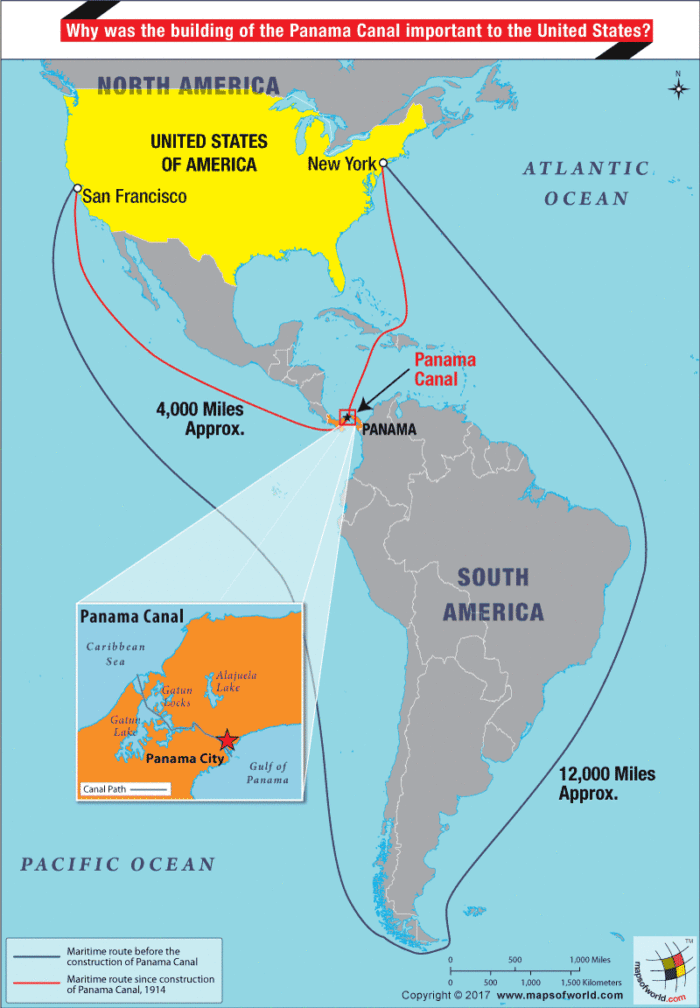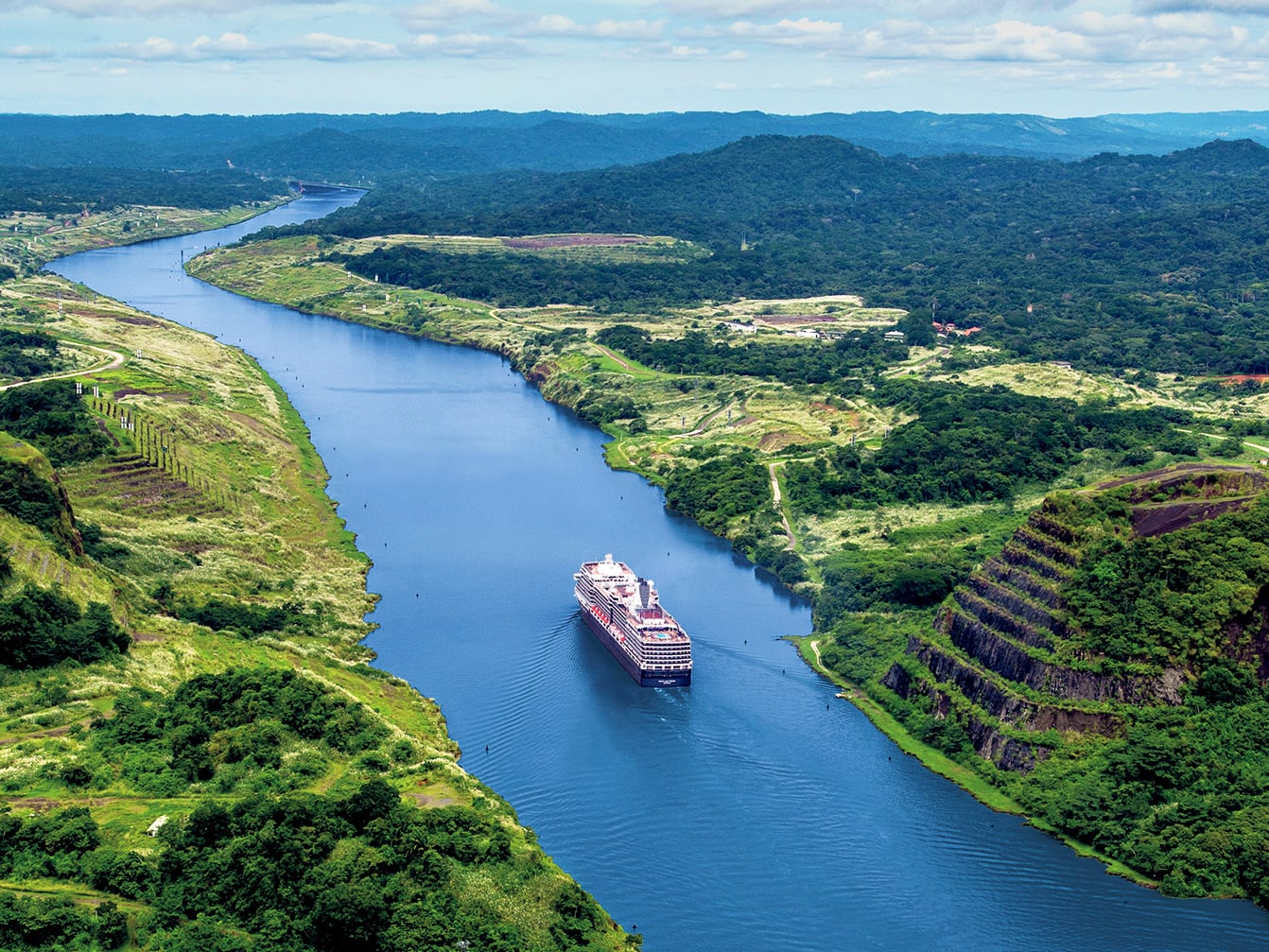Time Estimation for Cargo Trip
Taking a fuel efficient cruise speed of 21 knots for an average container ship, the 2700 nautical miles trip from Long Beach, CA to the entrance of the Pacific Side of the Panama Canal would take roughly 5 1/2 days. At a normal containership cruise speed of 24 knots, the time drops to just above 4 1/2 days. Sailing non-stop at 20 knots, it would need 7.1 days to arrive at the Port of Balboa on the Pacific end of the canal from Long Beach. At 24 knots it would only take 5.9 days.

Distance Between Major West Coast Ports
The actual distance between Long Beach and the Panama Canal is 3423 nautical miles which is further than the estimate since Long Beach is a separate port from the major Port of Los Angeles located just east across Terminal Island. It typically takes a cargo ship approximately eight hours to sail the 100 nautical miles between the ports of Los Angeles and San Diego located to the south.
Complex Tolling System at Panama Canal
When I worked calculating tolls for the Panama Canal, the minimum fee was $2000, applying to smaller pleasure vessels like yachts. Larger commercial ships faced much higher costs, with the maximum toll reaching over $1,200,000 including tugboat assistance and other services. The tolling rules are intricate and continuously evolving as the Panama Canal Authority aims to maximize profits while maintaining a competitive cost structure for shippers worldwide.
Factors Affecting Transit Time and Costs
Many variables could impact the transit duration and expenses for a cargo voyage between the US West Coast and Panama. Speed, routing, delays, and bunker fuel consumption are some key determinants. Opting for a more fuel efficient speed saves on costs but lengthens the trip. Unexpected setbacks may force making up lost time. Tolls also fluctuate depending on ship size and cargo amount. Careful planning aims to balance the economics of each journey.
40-Year Career in Panama Canal Toll Collection
Working in toll collection and calculation for the Panama Canal provided a fascinating window into international shipping logistics for over four decades. It was a stable career that allowed observing the evolution of vessel sizes, traffic volumes, and pricing strategies over many years. Though sometimes complex, applying the tolling regulations to each transit kept the work mentally engaging. It gave a direct role in one of the most historically important global trade chokepoints.
Outlook for Future Cargo Traffic Patterns
As new ports and shipping lanes emerge worldwide, traffic routing between Asia, North America, and South America will likely diversify over the coming decades. The ongoing expansion of the Panama Canal may capture more oversized vessels but also faces competition from alternative routes. Emerging technologies could impact ship speeds and fuel usage. Overall, the movement of goods by sea ensures demand will remain high for efficient passage through strategic waterways like the Panama Canal far into the future. Careful analysis of trends helps all stakeholders prepare for changing commercial maritime conditions.

 Guide to Neighbourhoods in Harare, Zimbabwe
Guide to Neighbourhoods in Harare, Zimbabwe